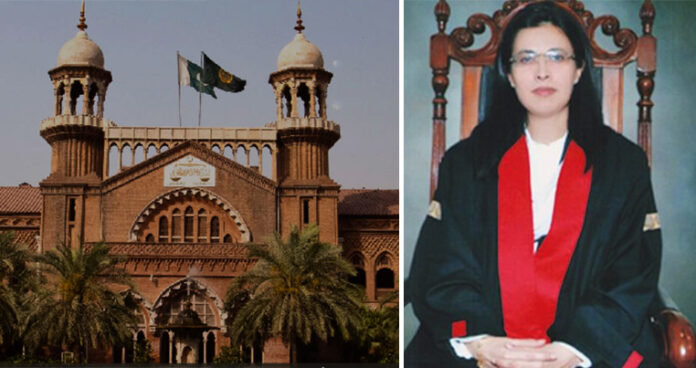Pakistani people have been celebrating ever since the news of Justice Ayesha Malik being elevated as a judge in the Supreme Court (SC). This will be the first time the Judicial Commission of Pakistan (JCP) will appoint a female judge. According to reports, Chief Justice Gulzar Ahmed nominated Malik to lead the apex court after September 9 meeting. She will be replacing Justice Mushir Alam when his pension starts on August 17 and the position becomes vacant. Currently, the sanctioned strength of SC is complete with 17 judges.
Many rejoiced that there would finally be a female judge in SC, especially when femicide is on the rise. They congratulated all women of Pakistan on social media, who may now have a renewed sense of justice and hope in Pakistan.
Who is Ayesha Malik?
Malik started her career while working with Fakhruddin G. Ebrahim and Co. in Karachi from 1997 to 2001 as an assistant to former chief election commissioner Fakhruddin Ebrahim (late). From 2001 to the present, she has worked with RIAA (Rizvi, Isa, Afridi, and Angell) as a senior associate and then as a partner. She also led the firm’s office in Lahore along with its Corporate and Litigation Department.
Malik taught banking law at the University of Punjab, and mercantile law at the College of Accounting and Management Sciences. She also voluntarily taught English language and development in communication skills at Herman Meiner School in Lahore for many years.
Work and Achievements
Malik completed her basic education from Paris and New York schools before doing Senior Cambridge from Karachi Grammar School and A-Levels from London. She started studying law at Pakistan College of Law and went to do LLB from Harvard Law School in the USA. There she became a London H. Gammon Fellow 1998-1999 for her outstanding performance.
Justice Ayesha Malik worked pro bono for NGOs in cases of poverty alleviation, skills training programs, and microfinance programs. She was an author for several publications, including the 12th edition of the Global Report 2004 on the Independence of the Judiciary-Pakistan Chapter. She also compiled the selected cases from 1956-2006 for Pakistan College of Law on the 50th anniversary of SC. She contributed to the Merger Control, and Regulation Global Competitive Review. She has also been a reporter for Pakistan for the Oxford University Press. There are many other accolades to her name that did not even come to the media’s notice.
Reaction from Pakistanis
Appointing a female judge in SC is a monumental decision for Pakistan’s judicial system. Horrifying events have taken place in this country, which has practically established Pakistan as unsafe for women. Noor Muqaddam Case is one example that citizens cannot forget. The killer who beheaded Noor is still in jail and being served food.
Some pointed out the fact that after becoming the first woman judge of the SC, Ayesha Malik would naturally be the Chief justice by 2030. They were glad that someone deserving finally made it.
Others were just happy that courts in Pakistan would start to become more inclusive. If Malik could make it to the top, other women maybe also in the pipeline for breaking more glass ceilings.


